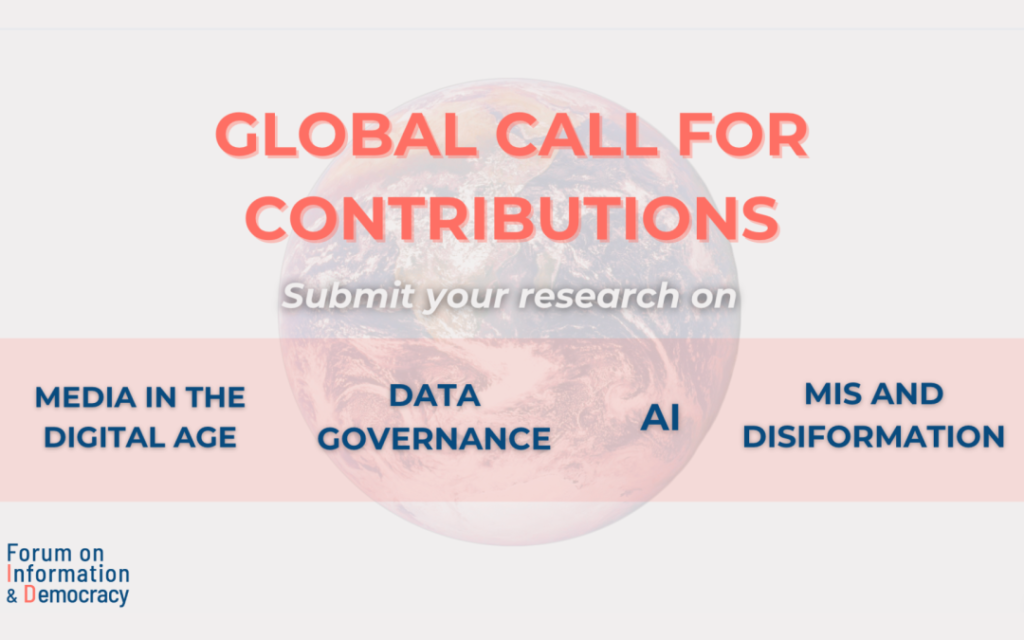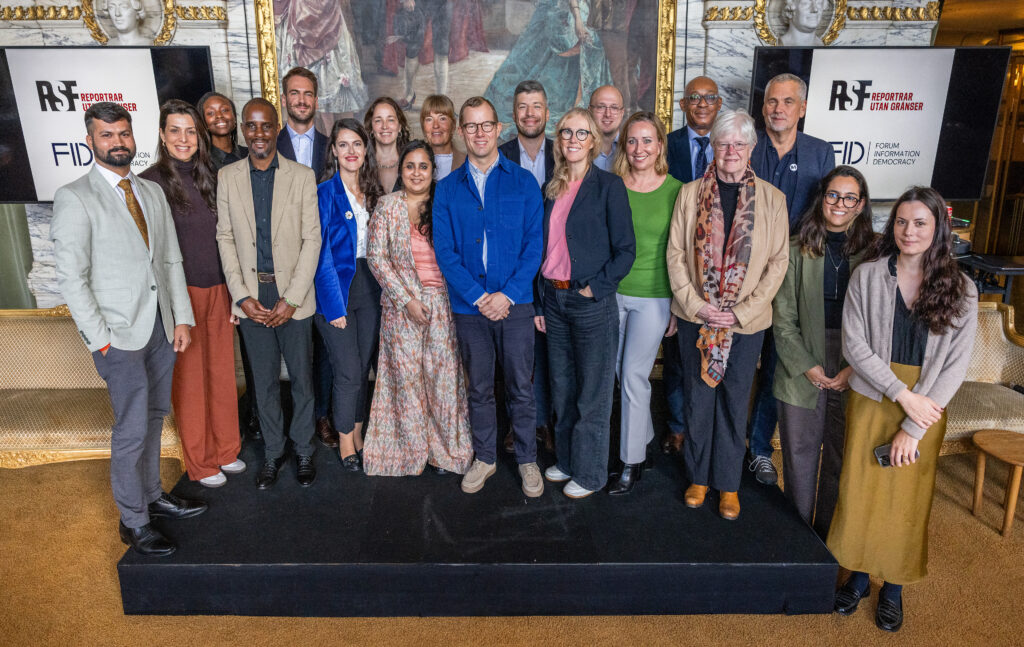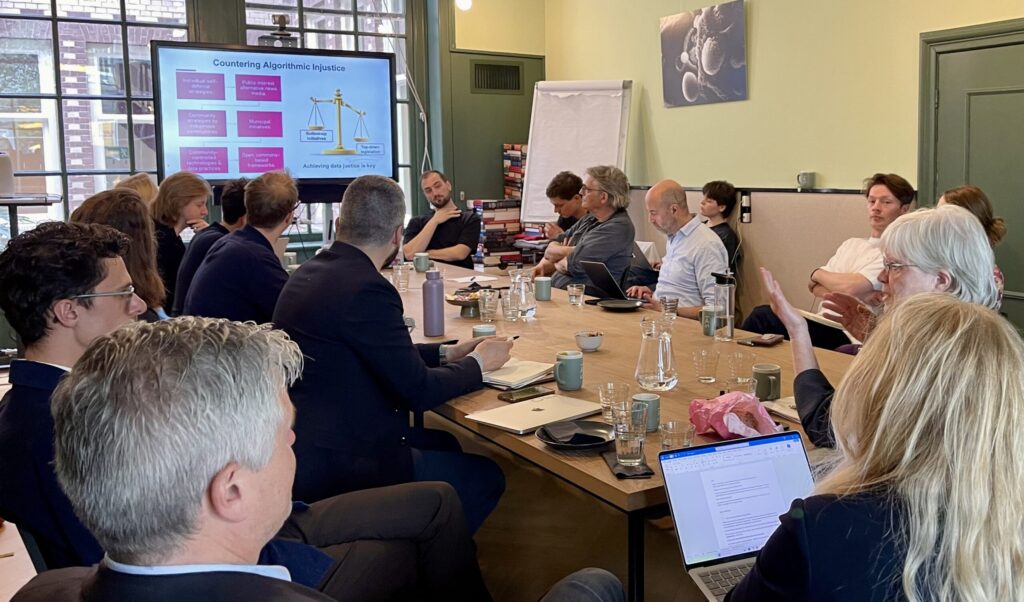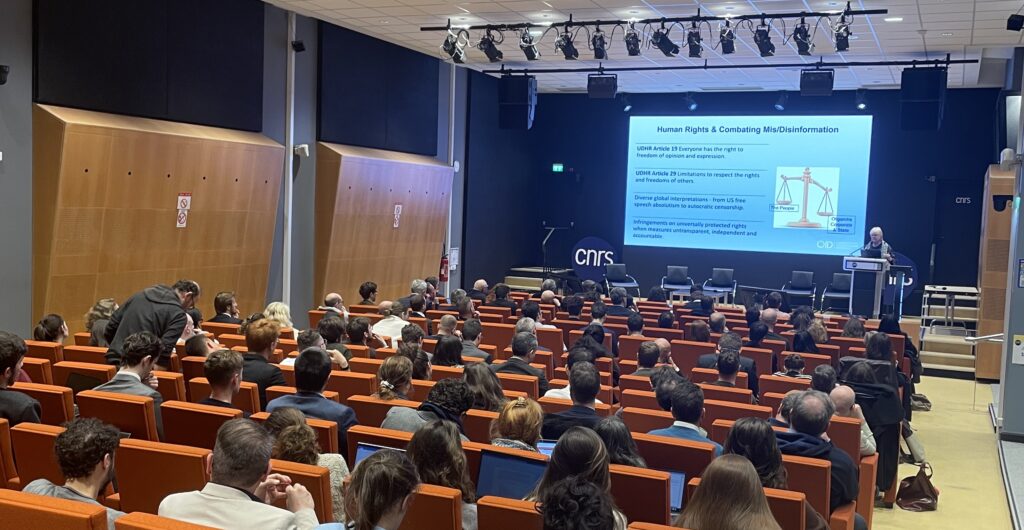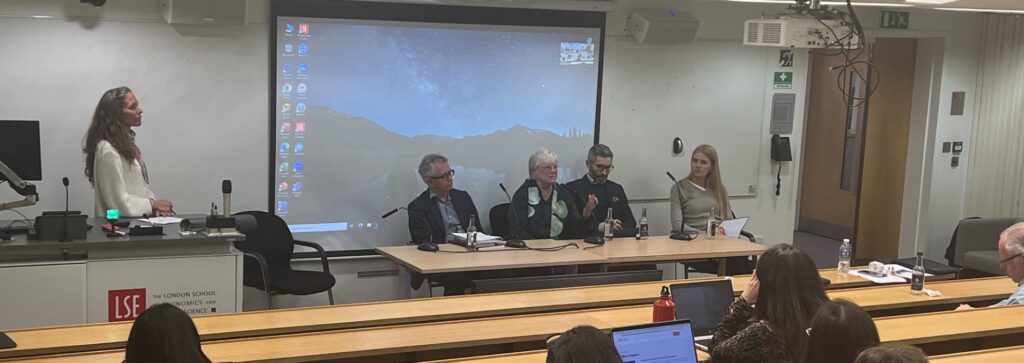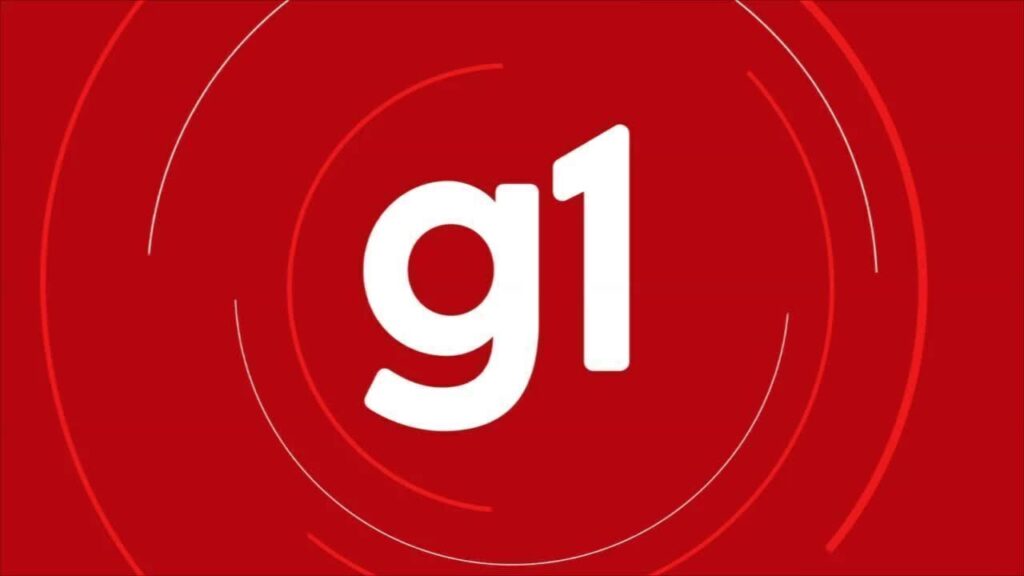The International Observatory on Information and Democracy opens a global call for contributions to gather international research on the four priority themes of its inaugural report:
- Artificial Intelligence, information ecosystems and democracy
- Media Politics and Trust
- Data Governance and Democracy
- Misinformation and Disinformation (as a cross-cutting issue)
The Observatory’s mission is to develop a common understanding of the impact of technology on the architecture of the information and communication space, and consequently our democratic institutions. The Observatory accomplishes this in part through production of a biennial report synthesising state-of-the-art existing research from around the world. The Observatory will use meta-research, by aggregating and synthesizing existing evidence through literature reviews and thematic analysis, informed by expert consultations as appropriate. It will also provide an assessment of the critical gaps in the research. This report will establish a common understanding of what we know – and don’t know – and thus support governments, policymakers, regulatory bodies, NGOs and tech corporations debate and design better policies to safeguard our democratic institutions
Three Research Assessment Panels (RAPs) – focusing respectively on each thematic priority area mentioned above – commenced their work earlier this month. They include a wide network of international researchers and academics and are led by a Scientific Director, expert rapporteurs and the Observatory’s permanent staff.
To ensure the highest quality, relevance and diversity of the findings of the inaugural report, the Observatory is therefore calling upon experts and researchers on Artificial intelligence, media in the digital age, data governance and mis- and disinformation to submit their literature material answering the research questions addressed in the call.
We invite you to share comments or papers, reports or published opinion pieces. You may submit the contribution template (see below) directly to our email (observatory@informationdemocracy.org) in English, French, Spanish or Portuguese or using the survey by 7 January 2024.
The call for contributions is open to any individual or institution working in any capacity on these issues. We will not attribute any individual comments to you by name. However, with your permission we will thank you for your contribution in the Acknowledgements section of the Observatory’s final report. If you agree, please include your official title or your institution in your contribution.
The first report of the Observatory will be published in December 2024.
You may download the:
- Call for contribution on Artificial intelligence
- Call for contribution on Media
- Call for contribution on Data Governance
- Call for contribution on Misinformation and Disinformation
- Template for providing contribution
Or use this survey link.
Please send the template to the following email address: observatory@informationdemocracy.org
